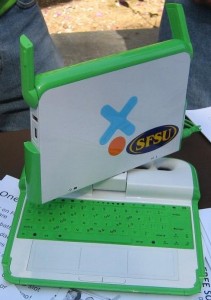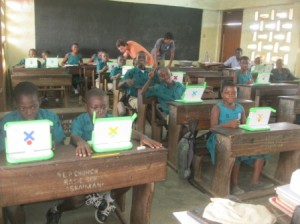For four years, OLPC has had fruitful collaboration with the indefatigable Sameer Verma and others at SFSU, on hardware, Sugar activity design, and community building. Now at last we have a formal MOU between the University and OLPC[A]. This may be just the first of many MOUs with universities in the US, as we develop a network of supporting organizations working with OLPC on international projects.

Sameer and his students and colleagues have already worked with grassroots OLPC projects in Tuva, India, Armenia, Jamaica, and North Africa. Thanks to you all for your support and great ideas so far; we look forward to working more actively together, and perhaps drawing in new departments as well 😉
There’s a lovely and unflinching personal recollection by Sameer of the development of his XO addiction, on SFSU’s opensource blog. A few highlights:
OLPC came into my professional [and personal] life in July 2007 when I signed up for the Developers Program and got an OLPC XO-1 B2 machine. How excited was I? I slept with it under my pillow. Seriously.
The hype and novelty factor diminished in six months and the question arose: “Why bother spending a Saturday for this?” Then came the answer in the form of actual projects… work, not just advocacy. We started with four projects and now have a list of fourteen.
You can read the text of the MOU as well.

